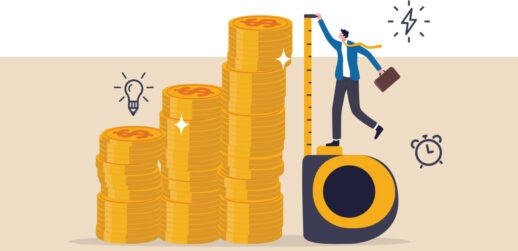As June wraps up, we can look back at Pride Month and admire all of the incredible events, demonstrations and strides that helped support the LGBT community. But before we pat ourselves on the back, let’s acknowledge the reality—there’s always room for improvement. And this topic needs to be a year-round focus.
Much of the meeting and event planning industry only recently began evaluating its impact on the LGBT community. Even though you might assume that your meetings and events are free of bias, there’s always an effect. So how can planners be more conscientious? What are the basic steps towards establishing inclusion? LGBTMPA Executive Director David Jefferys and LGBTMPA board member Jim Clapes shared some essential steps in planning an LGBT-friendly meeting or event. We’ll help get you started.
Begin with Location
Choosing the right space in the right location is fundamental to an LGBT-friendly event. Have a conversation with your contact at a potential venue about their prior experience with LGBT-friendly events and any diversity training the staff has completed. Evaluate city policies and attitudes prior to committing.
“It starts with site selections—being aware of city and state policies, including laws that could be discriminatory,” Clapes says. “Make sure you have an open line of communication with your vendors and know what the local climate is when it comes to the LGBT community,”
Are you unsure about a particular state? Just look here.
Most tier 1 cities are progressive. Unfortunately, they also tend to be the more expensive options. If you’re stuck planning in an intolerant city then you should reach out to the local CVB. Inquire about any nearby exceptions to the state attitude, request a realistic depiction of the local atmosphere and perhaps seek advice.
It’s important to take a stand, as well. Make it known to CVBs that any intolerance is unacceptable. You can even point to the major, and very real, fiscal impact of discriminatory legislation. For example, Skift reports that the State of North Carolina has already lost nearly $83.9 million in direct spending from cancellations due to HB2. Voicing concerns and apprehension is not just important to your event. Ultimately, it will benefit the LGBT community and may lead to widespread change.
Set the Stage for Inclusivity
Apply the “Force Majeure/Excuse of Performance” clause: Demand this clause during negotiation. It allows you back out of a contract without liability or damage costs if that state begins enacting any anti-LGBT legislation between the time of signing the contact and the time of program execution. This is especially crucial as the “bathroom bill” floats around.
Get perspective from the LGBT community: Find out how any of the work your organization does might be affecting it and ask what you can do better. Get involved with LGBTMPA to stay connected and informed. After an event, give attendees an assessment on how well you’re accommodating the LGBT community.
Be mindful of gender identity: If you document sex or gender through your registration site, be sure to include “transgender” and “I do not wish to self-identify” as options. If the property allows it, implement an “All Gender Restroom” sign outside of the main meeting area during the event.
Give LGBT a voice: Whether it’s through your program, host committee, marketing collateral, registration mailer or keynote speaker, LGBT needs to have a platform. Also, hosting an LGBT-identified keynote speaker is empowering even if they don’t touch on an LGBT topic.
Be mindful of language: Establish a zero-tolerance policy for homophobic, racist, sexist or any other biased language at your events. Publicize this on your website and during the event. Also, clearly communicate your stance and expectations to your team, attendees, sponsors and vendors. In addition, have panelists and speakers use gender-neutral terms with the pronouns “they, them and their.”
Organize an LGBT networking mixer: Regardless of what brings people together for your meeting or event, this will be appreciated. It doesn’t have to be exclusively LGBT, but it definitely promotes inclusivity.
LGBTMPA
The newly created LGBTMPA is a strong LGBT voice in the meeting and event planning world. Considering a prior lack of representation, along with the association’s booming success, it’s evident that their presence is very much needed.
“I wanted to create an LGBT-focused community where anyone could have a dialogue. It turned out there was no representation anywhere,” Jeffreys says.
He describes LGBTMPA as an organization serving the meeting professional community to provide the ideal network for the advancement and growth of its members in the industry.
“I am very excited to see the amazing growth we have had in such a short time,” Jeffreys says. “It provides the proof to me that the missing piece in the LGBT travel industry has been the groups, meetings and events for LGBT meeting professionals.”
LGBTMPA’s very first workshop and networking event will be held at A Starwood Hotel in San Francisco this November. It will be three-day event, but half-day tickets are also on sale.




